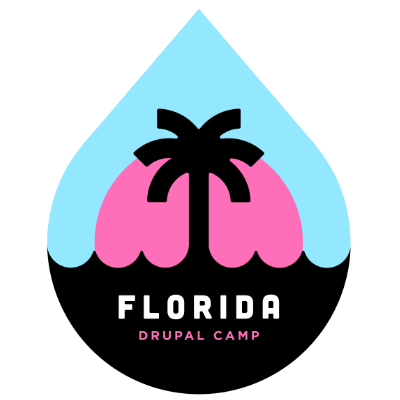Taking Control with Self-Hosting: Insights from Florida DrupalCamp

Viagio Technical Director & Senior PHP Developer Josh Fabean is taking over the blog to share some insight from his experience attending Florida DrupalCamp and presenting about self-hosting.
“Recently, I had the opportunity to speak at Florida DrupalCamp, where I shared my thoughts on self-hosting and its benefits. If you’re interested in reducing your reliance on big tech services, enhancing your privacy, or even gaining valuable tech skills, self-hosting is a fantastic avenue to explore. Here’s a recap of my talk and some key takeaways.
What is Self-Hosting?
Self-hosting involves running various services and applications on your own hardware instead of relying on paid subscriptions or “free” platforms offered by tech giants. Whether you have an old laptop, a Raspberry Pi, or other hardware lying around, you can transform it into a powerful server for your personal or professional needs.
For example, rather than relying on Google Drive or Dropbox, you can set up Nextcloud, an open-source content collaboration platform that mirrors those services’ functionality. Self-hosting offers significant benefits in terms of:
- Security: Control your data directly without third-party risks.
- Privacy: Avoid unnecessary data sharing with large corporations.
- Cost Savings: Eliminate ongoing subscription fees by utilizing your own hardware.
Practical Self-Hosting Solutions
In my session, I shared this GitLab repository containing samples and guidance for deploying various self-hosted services. I walked attendees through several examples, demonstrating alternatives to common paid services.
Beyond personal benefits, self-hosting is an excellent educational opportunity. The skills you develop align closely with what companies like Viagio use for hosting client websites. By diving into self-hosting, you can level up your technical skills and move toward a DevOps-style career path.
Experience Builder: A Sneak Peek at Drupal’s Future
One of the most exciting things I learned at the camp was about Experience Builder, an upcoming UI for building Drupal websites. Although it’s still in development, this tool is designed to simplify the process of creating custom, visually appealing landing pages without needing extensive coding knowledge. Think of it as Drupal’s answer to platforms like SquareSpace or WordPress page builders.
While Experience Builder isn’t yet finalized, this session provided a glimpse of what works now and what features are expected to be available at launch. For those invested in Drupal development, this tool promises to open up web design possibilities for non-technical users.
The Value of Community at Florida DrupalCamp
Attending Florida DrupalCamp isn’t just about the sessions — it’s about connecting with people. Sharing meals, conversations, and ideas with industry peers is invaluable. While the camp has a strong Florida presence, attendees come from all over the U.S. and even internationally. This diversity of perspectives helps foster new ideas, creative solutions, and lasting connections in the tech community.
I highly recommend checking out the resources shared above if you have interest in the world of self-hosting or are excited to explore Drupal’s evolving tools like Experience Builder. Whether for personal growth, career advancement, or just the satisfaction of taking control of your data, self-hosting is a rewarding journey worth exploring. “
Interested in learning more? Watch Josh’s full presentation on YouTube!










